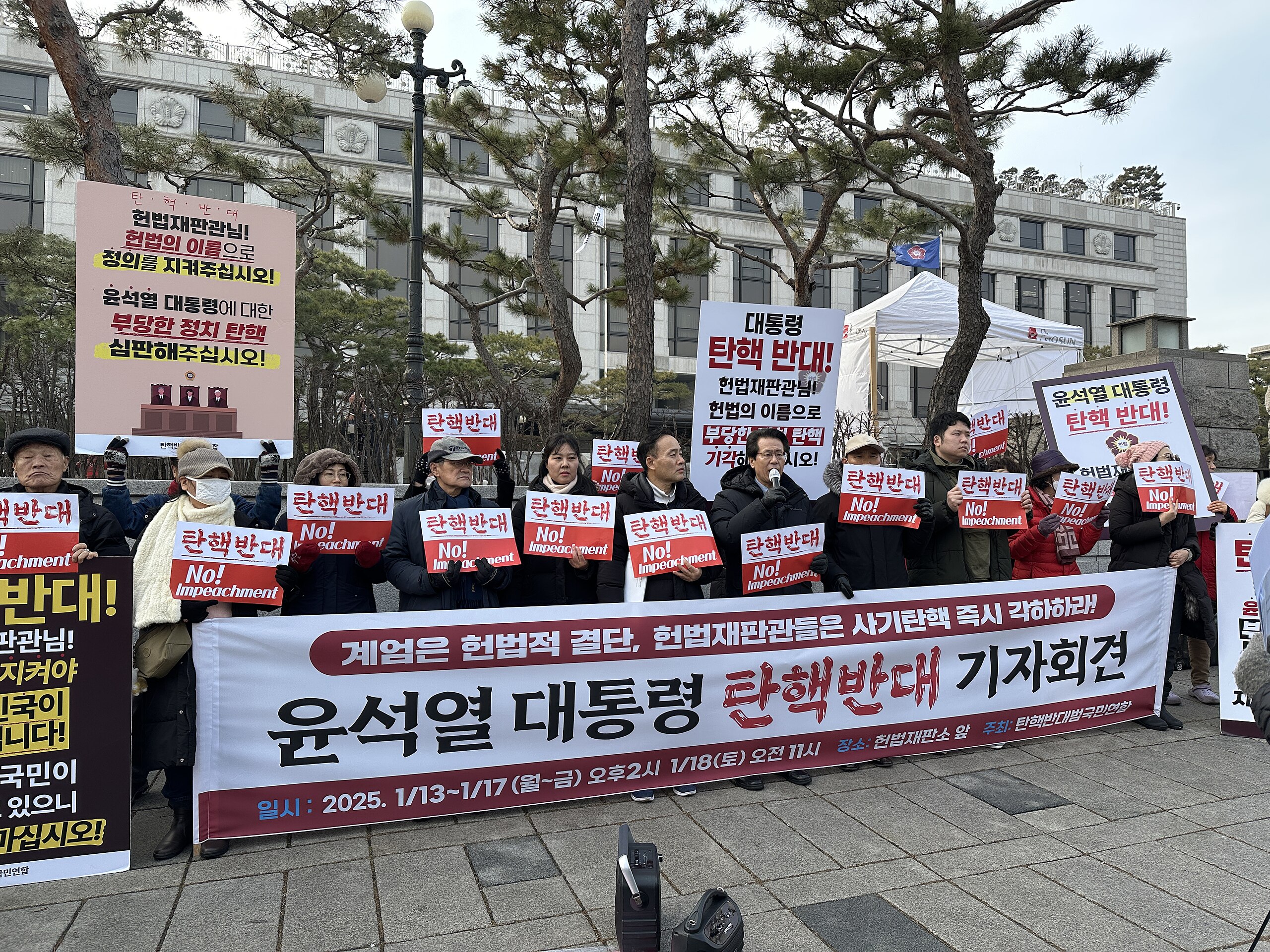Publication
The incident of martial law in South Korea, and the events that unfolded afterwards, not only contribute to the global trend of democracy fading, but also highlight the distinct strengths of the Korean nation.

Supporters of Yoon gather for a demonstration outside the Constitutional Court at the commencement of his impeachment trial, Jan. 14, 2025.
Image Source: Wikimedia Commons/ Seefooddiet
In a shocking late-night address on December 3, 2024, President Yoon Suk-yeol of South Korea announced the imposition of martial law, triggering a political crisis that endures to this day. Following revelations of a larger conspiracy to detain opposition figures by military officials, Yoon was impeached by the National Assembly. As his impeachment case is being reviewed by the Constitutional Court, the Corruption Investigation Office for High-ranking Officials (CIO) is concurrently probing into charges of insurrection against Yoon – one of the only two crimes a sitting president can face, the other being treason. Yoon, after using the Presidential Security Service to thwart one arrest attempt, was eventually apprehended on January 15. This arrest, along with a subsequent court decision to extend his detention, led to violent protests from his supporters, who even attacked and vandalized the court premises.
So, what led South Korea to this situation?
Shannon Tiezzi, The Diplomat’s chief editor, sat down with Gi-Wook Shin, the William J. Perry Professor of Contemporary Korea in Sociology at Stanford University, for a conversation on the subject. According to Shin, an authority on South Korean social movements and democracy, the national reaction to Yoon’s declaration of martial law “emphasizes that South Koreans highly value their hard-earned democracy.”
“…This incident underlines both the vulnerability and robustness of Korea’s nascent democracy.”
How has South Korea’s past as a dictatorship – and previous experiences with martial law – influenced both Yoon’s decision to declare martial law and the public’s response?
The dark history of dictatorship and martial law in South Korea continues to deeply affect its current politics. I started my college journey in 1979, a year characterized by the murder of Park Chung-hee in late October and subsequent political chaos under martial law. Interestingly, President Yoon Suk-yeol also began his college education the same year as me, and it’s surprising that he seems to have overlooked our shared experiences and decided to impose martial law.
Yoon’s declaration of martial law in December sparked an immediate and resolute public outcry, fueled by a collective memory of years of resistance against authoritarian regimes. This response emphasizes that South Koreans do not take their hard-fought democracy lightly. Citizens, civic groups, and lawmakers acted promptly, reversing the martial law decision within six hours and passing the impeachment motion against Yoon 11 days later. Despite recent setbacks, this active civic participation exhibits their experiences have fostered a strong dedication to protecting democratic values.




